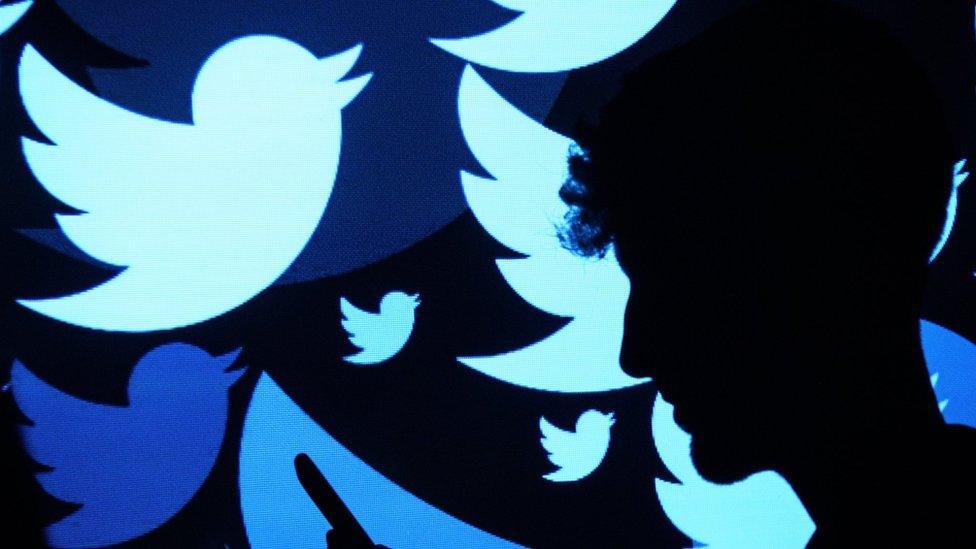Troll alert tool banned by Twitter
- Published

Twitter has shut down a crowd-sourced effort to expose fake accounts posting racist messages on the social network.
The Imposter Buster bot automatically replied to tweets posted by fake accounts, to warn other people.
However, Twitter suspended the bot after a large number of "spam complaints" were filed against it, according to the New York Times, external.
"Impostor Buster was doing Twitter's job for it," said writer Yair Rosenberg.
Impersonator trolls
Mr Rosenberg had identified that online trolls were forging false identities by stealing photographs of Jews and Muslims wearing religious clothes.
The trolls presented themselves on Twitter as religious figures with biographies such as "fighting anti-Semitism" and "enemy of the right wing".
However, they would join in conversations and post messages such as "not all Nazis were bad" and "If Theresa May evicted the UK's Muslims, I would commission a statue in her honour".
Mr Rosenberg described the accounts as "disturbingly effective" as it would not be immediately obvious to spectators that the profiles were fake.
Imposter Buster
Working with a volunteer software developer, Mr Rosenberg developed a bot that would reply to tweets posted by the fake accounts.
"Using a crowd-sourced database of impersonator accounts, carefully curated by us to avoid any false positives, the bot patrolled Twitter and interjected whenever impostors tried to insinuate themselves into a discussion," he explained.
He said the bot had proved popular with Twitter users - but also attracted the attention of the trolls it was designed to expose.
"They started mass-reporting it to Twitter for 'harassment'," he said.
"Just as they duplicitously cast themselves as minorities, they disingenuously recast our response to their ongoing abuse as harassment."
Suspended
On Wednesday, Mr Rosenberg said Twitter had banned the bot.
"The company's justifications were both entirely accurate and utterly absurd," he wrote.
In his article, he said the bot had been banned because it had posted "high volumes" of "duplicative content". Twitter had also received a "large number of spam complaints", which Mr Rosenberg said had probably been submitted by the online trolls.
Many people were disappointed that the site had chosen to ban the Imposter Buster.
"Utterly and completely outrageous," said journalist Yascha Mounk. "I'm strongly against censorship of social media. But if companies like Twitter continue to be this infuriatingly incompetent (or worse), the tide will turn against them fast."
Twitter has struggled to tackle harassment and abuse on the platform, and has been criticised for struggling to enforce its own rules consistently.
In December, it expanded what it classed as hateful and harmful behaviour and said it would enforce stricter rules.
The company has not yet responded to the BBC's request for comment.
- Published18 December 2017